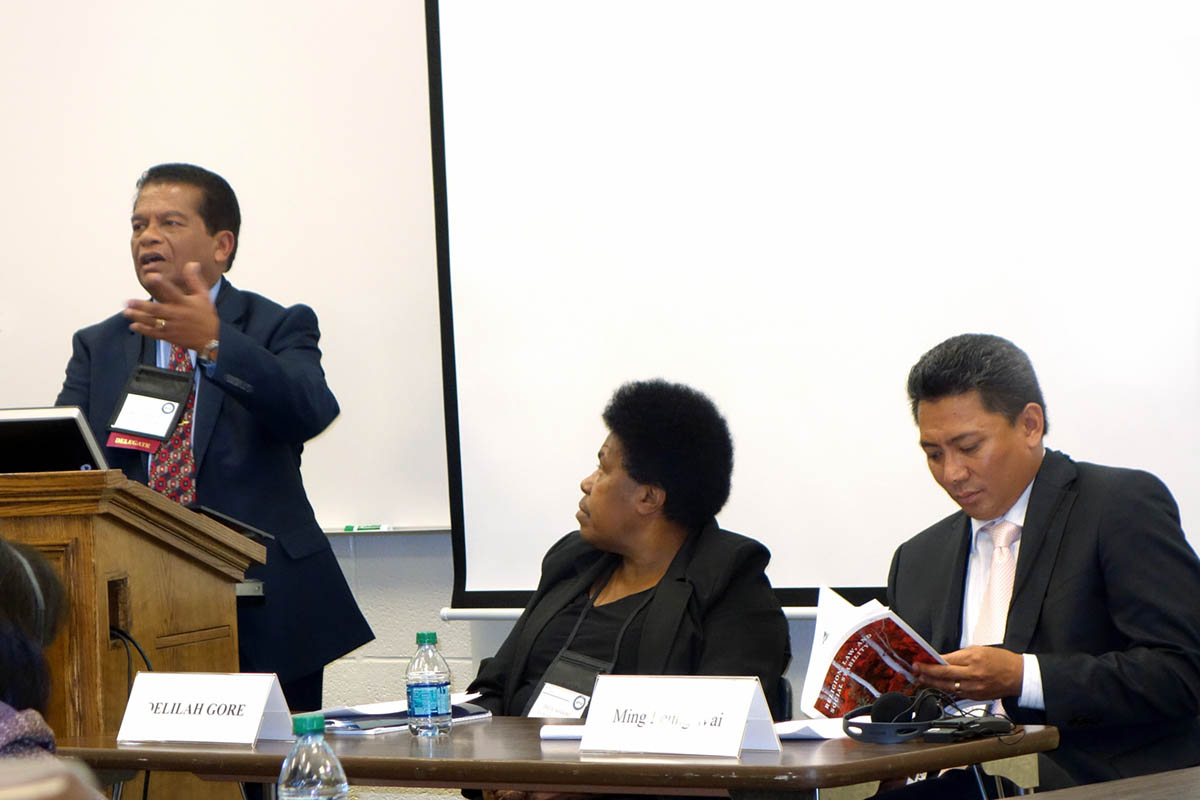Symposium 2015: Indonesia and Pacific Islands

Reported by Abby McKeon
This session was moderated by Chad Emmett, Associate professor, Department of Geography at Brigham Young University.
The session began with Delilah Gore, Minister for Religion, Youth and Community Development, National Parliament of Papua New Guinea, presenting on Papua New Guinea and the status of religious freedom. Papua New Guinea is a Christian island nation with a constitution that provides for freedom of religion. The predominant religion is Roman Catholicism. Public schools offer religious classes to students that are typically chosen by the parents. Ms. Gore highlighted the need for the government to partner with churches and other religiously affiliated programs in order to foster respect and be able to address conflicts in society.
Shelten Neth, a State Senator from Pohnpei State in the Federated States of Micronesia, presented on the status of religion in Micronesia. Pohnpei is the capital of this collection of islands where there are many social activities centered on religious traditions. Micronesia is a very peaceful, harmonious, and united collection of islands governed by a kingship. The culture of Micronesia is based on the teachings of Christianity and The Church of Jesus Christ of Latter-day Saints is the most rapidly growing church.
Ming Leung Wai, Attorney General of Samoa, reported on the status of religious freedom in Samoa. Samoa’s legal system is based on English Common Law, but there is also the chief system within villages that is based on a traditional political system. Currently, the Samoan government faces some practical challenges when trying to protect the freedom of religion. Samoa enjoys a lot of peace among the various villages based on the respect for each village’s ancient beliefs. However, difficulties arise when people try to introduce new religions in villages. Many of the villages value communal interests over individual rights, but the government wants to make sure that people’s constitutional right of freedom of religion is protected and chiefs still help maintain peace. The government has proposed a constitutional amendment to strengthen the authority of the chiefs, but also provides checks on the chiefs’ decisions when it comes to introducing new religions in villages.
The session concluded with Agus Sholeh, Head of Foreign Relations, Ministry of Religion, Indonesia, presenting on the status of religion in Indonesia. Indonesia is made up of over 17,000 islands, resulting in a lot of diversity. Although there is a lot of diversity, religion has always been important in Indonesia, with the majority religion being Islam. Some of the problems that the country faces are the low level of understanding, appreciation, and practice of religion, and the low quality of religious education. Mr. Sholeh reported that the vision of the Ministry of Religious Affairs is to combat these problems and improve the quality of internal religious harmony, religion to religion harmony, and religion to government harmony.